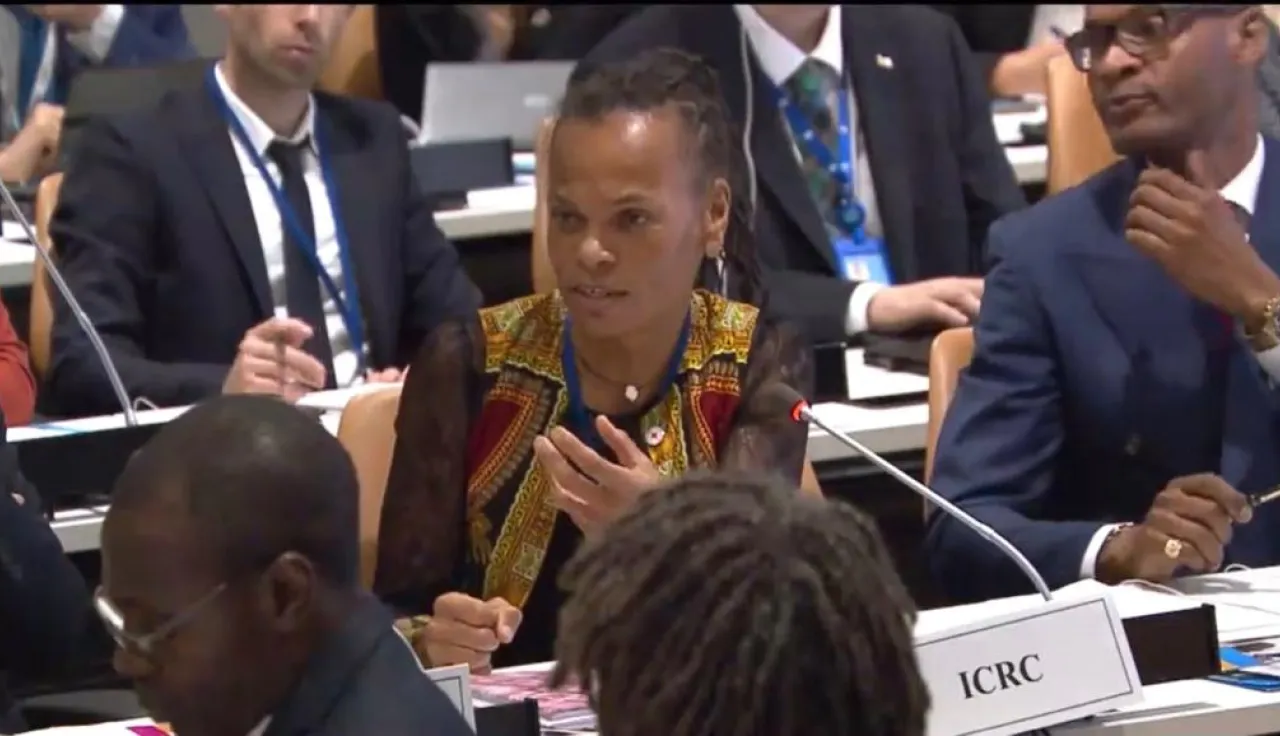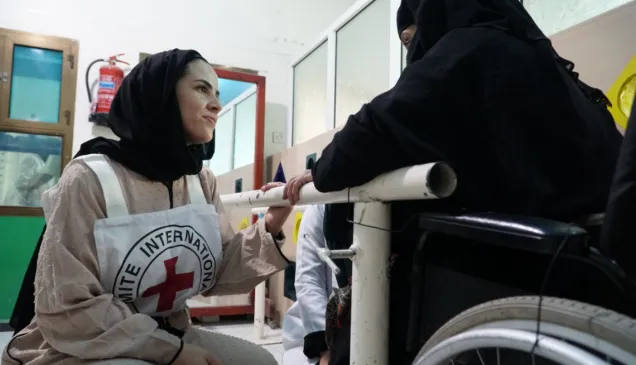Excellencies,
As a delegate of the International Committee of the Red Cross I have looked into many eyes of survivors of sexual violence. I sat with survivors and listened to their horrible stories. Humbled by their resilience, I am personally taking this topic very much at heart.
The ICRC prioritizes sexual violence in our efforts to promote respect for international humanitarian law. Today, I am here to share experiences from our operations and ways that progress can be made on this important issue.
Firstly, sexual violence is not an inevitable part of war and it can and must be prevented.
Adequate laws need to be put in place. We support States to develop these laws and to make them accessible to military personnel, civil servants and law enforcement agents through training.
However, an exclusive focus on the law is by far not enough to influence behavior. For instance, our dialogue with a non-state armed group in the Great Lakes region led to the prohibition of sexual violence in its code of conduct.
In general, arms carriers – when I was a delegate I remember the sessions I had with improvised flip charts and so on, when we put them up with an arm carrier dragging a woman into the bush, and I asked "so what is wrong with this image?" And they said, "not much." The group of soldiers that I had in front of me, they said "not much." Then I told them, if this woman was your wife, your daughter, your aunt or your mother, what would be wrong there?" And then the discussion really started.
Second, when we provide care to survivors of sexual violence, we recognize that this support is not enough. We need to fight stigmatization.
In DRC, since 2005, the ICRC has assisted 6,500 survivors, the vast majority being women and girls, through psychosocial support by Counselling Houses and through health structures. More than half of the victims visited a center within 72 hours, meaning timely medical referral is possible.
But changing people's mindset around sexual violence is crucial. Survivors are often ostracized by their immediate family and their wider community, they often feel alone and totally misunderstood. In our work, we foster a supportive environment in communities that makes integration less tough. In DRC, we help survivors to rebuild their socio-economic capital, they regain some independence, and this can help to reduce stigma. Women tell us that their economic improvements lead to improved personal well-being and better social integration.
In South Sudan, partnership with 23 Primary Health Care structures and 3 hospitals helps make clinical management of rape available to more communities. Together with health authorities, the South Sudanese Red Cross Society and others, we have strengthened referral pathways for survivors to access the support services they need.
We believe that progress can be made. But we must recognize that the primary responsibility lies with States. They must put in place mechanisms to first prevent sexual violence to occur:
1. Ensure an adequate set-up in institutions in prison service, the police and the military. Armed forces must integrate prevention of sexual violence into doctrines and trainings.
2. Ensure a domestic legal framework that enables the prosecution of persons who have committed IHL violations, including sexual violence.
and then also
3. Ensure adequate physical and mental health care in national action plans for the clinical management of sexual violence. This should include training of health staff, effective referral systems, equipment, facilities and guidelines in local languages.
Thank you.


